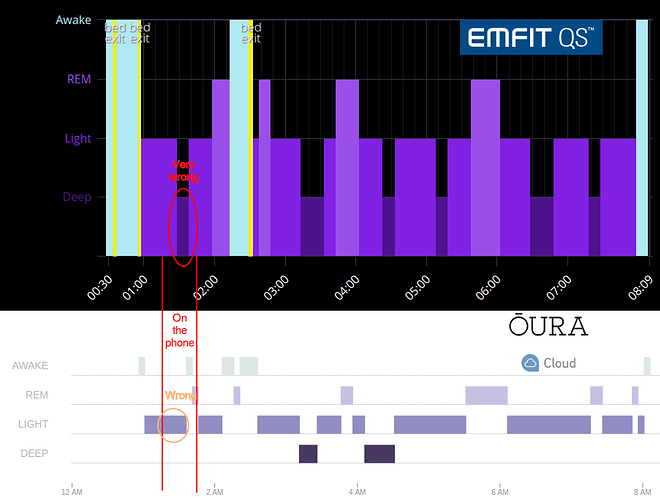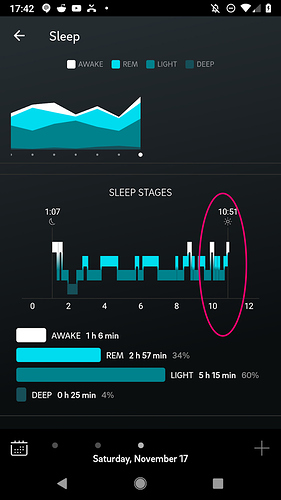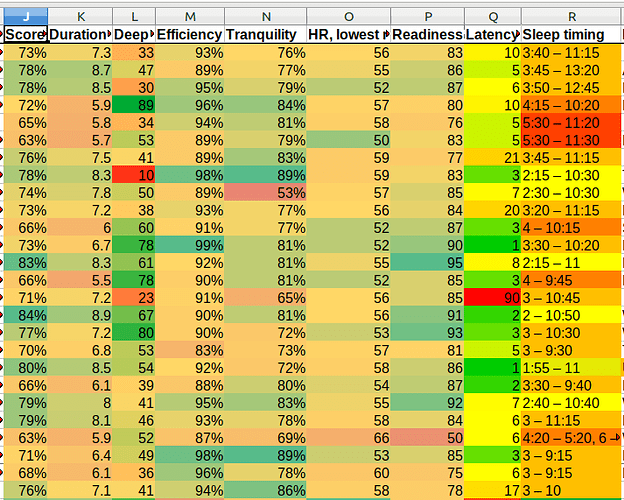Is the Second Generation Oura ring any more accurate?
I’ve been wearing both the old and the new Oura rings on each hand at night, for about a month (since Oct 12, skipping some days). The two rings generally agree on the bed start and stop time, but I also only put them on during sleep, so it’s not that hard to detect the transition from no finger to finger. They also mostly agree on deep sleep duration, but on several occasions one indicated twice as much sleep as the other. (If there’s interest, I can plot the data).
What concerts me a lot though, is that REM and light sleep detection is still clearly very inaccurate. As many other folks reported, Oura detects them asleep while they’re watching TV or reading in bed. Here’s the most recent instance of that, from yesterday morning:
It’s well established that not remembering wakeups is quite common. That incorrect sleep detection is about 90 minutes off. Can you really trust that the device would accurately detect you waking up for a few minutes due to sleep apnea, or something else bothering you, if you fall back asleep quickly and have no recollection of it?
I can’t.
I’ve raised this problem with the Oura team and they’ve acknowledged it, and said that deep sleep detection is a lot more reliable. I would have to trust them on that, but the two rings showing double/half deep sleep on some nights doesn’t give me much confidence.
Not saying Oura is useless. I did notice long-term correlations - e.g. when I sleep alone, I tend to record more ~45 minutes of deep sleep vs. 0-15, but not always. However, any sort of short-term conclusions, or “insights” about micro-wakeups, seem unwise. For example:
- basing your day on what the ring says about your “Readiness”
- deciding to buy the same mattress as a friend’s after you’ve slept in on it for a night
- thinking that your pet walking on you during sleep isn’t a problem
In the end, after ~5 years of sleep tracking with the QS Emfit, Beddit, Oura Gen 1 and Oura Gen 2 and a bunch of phone apps, all I can say in my case is that, for me the best sleep is 7+ hours, solo, on a consistent schedule (same sleep and wakeup times), and with earplugs. Cold vs. warm, dark vs. light bedroom, didn’t make much of a difference for me (I know they do for others).
So did I really need a fancy sleep monitor to figure that out? The best judges have been my performance at the gym, and ability to focus. Also, the effects of bad sleep can be delayed by one or more days, so I can have a crappy night of sleep and still perform well, if I’ve had good sleep the few nights before. Likewise, after a good night’s sleep, I can yawn all day and feel tired (probably because I had bad sleep some nights before that). This complicates drawing correlations, and sleep monitors further confuse the problem when they display readings like “High readiness, see how far you can push yourself today”.



